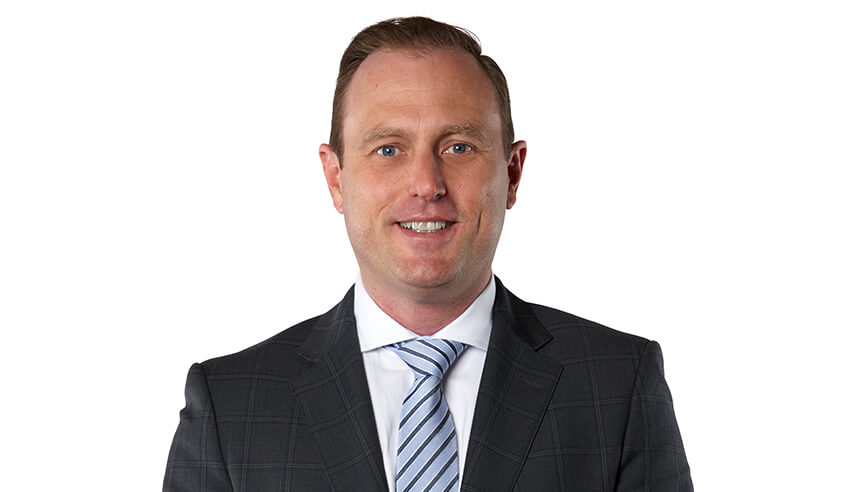How prosecutors can retain top talent
The challenge facing prosecutorial employers, Aaron Guilfoyle says, is that once a prosecutor succeeds, they’re wanted elsewhere.

Speaking recently on The Lawyers Weekly Show, MacDonnells Law special counsel Aaron Guilfoyle – who was Queensland’s inaugural independent Work, Health and Safety Prosecutor, and served nearly 20 years at the Commonwealth Director of Public Prosecutions, including as assistant director and principal federal prosecutor – said that getting the right people remains front of mind for prosecutorial agencies nationwide.
To continue reading the rest of this article, please log in.
Create free account to get unlimited news articles and more!
Attracting and retaining the best lawyers is not unique to the prosecutorial space by any means, Mr Guilfoyle noted. But part of the problem for this practice area is that, once a prosecutor succeeds, “they’re wanted elsewhere”.
This is particularly problematic in certain strands of prosecution work, he explained, such as his own in workplace, health and safety, in that the approach is often to recruit prosecutors and then have them learn about the practice area.
“It takes time to get good at whatever you’re doing in the law, including prosecuting. And once they succeed, they’re wanted elsewhere. I think that’s a real challenge for prosecution agencies, and for government as a whole, to be able to attract and develop and retain people who can do the difficult job at hand,” he said.
Part of the responsibility of senior prosecutors, Mr Guilfoyle advised, is to ensure that those coming through the ranks can see and understand just how rewarding prosecutorial work is as a vocational pathway.
They must, he said, “constantly remind their people why it is they’re doing what they’re doing”.
As the Work, Health and Safety Prosecutor in Queensland, he said, his office “had a very low attrition rate” for this reason.
“We were a very collegiate and collaborative office, but we also had strategic priorities. I always, in my career as a senior and chief executive prosecuting, approached prosecuting like a business. So, you have to have a plan, you have to have a culture, and your people need to know why you’re doing what you’re doing. We had a high retention rate there, in my humble assessment at least, people wanted to be there. They wanted to come to work, they didn’t want to leave, because through our messaging, they understood what we were achieving. It’s cliché, but the higher purpose,” he said.
Now in the private sector, Mr Guilfoyle acknowledges that, for those in firms, there are additional motivators, such as bonuses, that aren’t available to public servants.
“But lawyers everywhere are looking to achieve something more than to make money,” he stressed.
“Obviously, people need to pay bills, and in government and in prosecuting, if wages don’t, to some extent at least, at least keep up with what’s offered in the private sector, it will be difficult. But there certainly is something in letting those who are prosecuting know and understand that they’re really making a difference,” he submitted.
“I don’t think that is a cliché; it’s a real thing. And it’s why, if you get the message right, some people spend their entire careers prosecuting. They understand, there’s a feel-good factor to it. It’s nice to do something that you like technically, that you’re interested in. And I still turn up every day and troll through legislation and find that really interesting. I think if you can let people understand and know, ultimately, the difference that they’re making, you’ll have a better chance of retaining them.”
When asked how such guidance might evolve in a post-pandemic market, in which working conditions are shifting, Mr Guilfoyle said that prosecution is a practice area that “doesn’t change rapidly”.
This said, “prosecutors need to look for ways to do what they’re doing better”.
The advent of remote appearances means that all prosecutorial employers have to be “very flexible now”, he said, given that lawyers in this space aren’t stuck at their desks anymore.
“There’s an understanding that you can do a very good job and not be glued to your desk in the CBD for 12 hours a day. People have families to look after. I think that opportunity’s being taken. I’m not sure that yet we’ve figured out too many different ways to prosecute. It, as a business, needs to continue to look for efficiencies the same way other sectors have,” he mused.
The transcript of this podcast episode was slightly edited for publishing purposes. To listen to the full conversation with Aaron Guilfoyle, click below:






